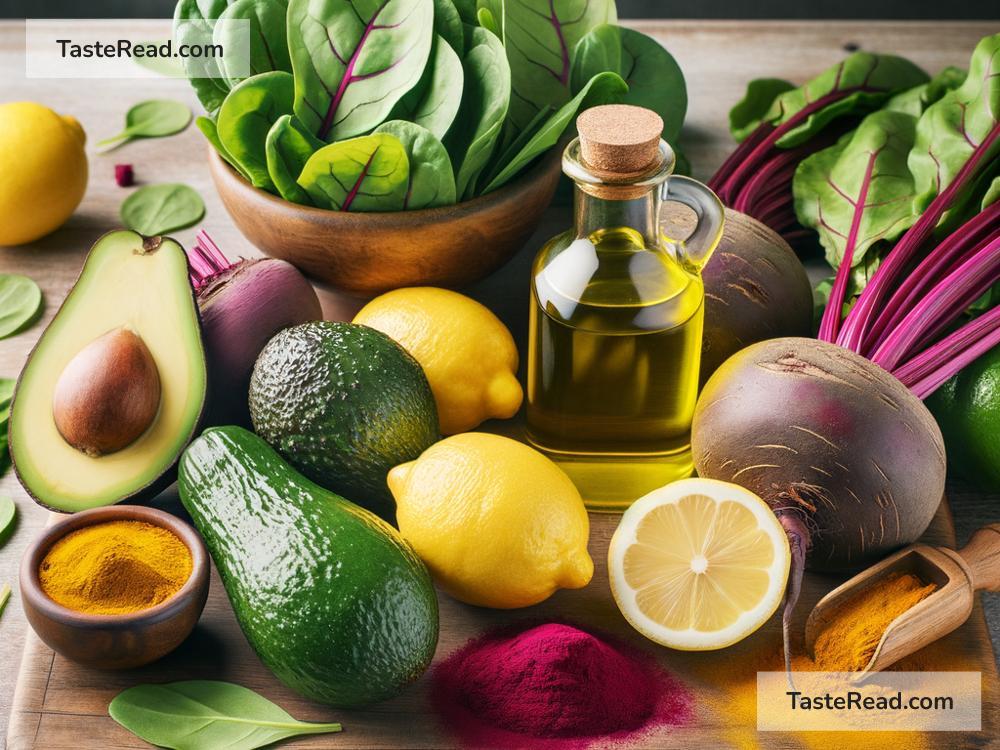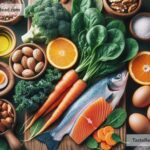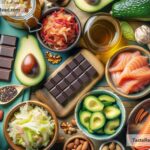Foods That Support Gallbladder Health: Eating Smarter for a Happier Tummy
Your gallbladder might not get as much attention as your heart or brain, but it’s a quiet hero in your digestive system. This small pear-shaped organ sits under your liver and helps store bile, a digestive liquid that breaks down fats in the food you eat. If your gallbladder isn’t healthy, it can cause problems like gallstones, inflammation, or even the need for surgery.
The good news? The foods you eat can make a big difference in keeping your gallbladder happy and healthy. This blog will share simple tips and a list of foods that can support gallbladder health for better digestion and overall wellness.
Why Is Gallbladder Health Important?
Your gallbladder releases bile into your small intestine to help digest fatty foods. But if you eat too many unhealthy fats, sugary foods, or processed meals, your gallbladder can struggle to work effectively. Over time, this can lead to gallstones (small hardened pieces of bile) or other gallbladder problems.
By choosing the right kinds of foods, you can reduce strain on your gallbladder, lower inflammation, and prevent the buildup of harmful substances.
Best Foods for Gallbladder Health
Let’s take a look at some of the top foods to include in your diet to support gallbladder health.
1. Fruits and Vegetables
Fresh fruits and vegetables are loaded with vitamins, minerals, and antioxidants that help reduce inflammation in the body. They are also rich in fiber, which promotes healthy digestion and prevents bile from becoming too concentrated.
Examples:
– Leafy greens like spinach and kale
– Broccoli and cauliflower
– Apples, pears, and berries
– Citrus fruits like oranges and lemons
Adding more colorful fruits and vegetables to your plate can make meals fun, nourishing, and gallbladder-friendly!
2. Healthy Fats
Not all fats are bad for your gallbladder. In fact, healthy fats can help your body process bile more effectively. Moderation is key — overloading your diet with fatty foods can still overwhelm your gallbladder.
Sources of healthy fats:
– Avocado
– Olive oil
– Nuts and seeds, like walnuts and flaxseeds
– Fatty fish, like salmon and mackerel (rich in omega-3s)
Try replacing unhealthy saturated fats (like butter or fried foods) with these heart-healthy options.
3. High-Fiber Foods
Fiber is the unsung hero of digestive health. It helps food move smoothly through your system, reduces inflammation, and keeps your gallbladder functioning properly.
Fiber-rich foods:
– Whole grains like oats, quinoa, and brown rice
– Beans, lentils, and chickpeas
– Fruits such as apples, bananas, and raspberries
– Vegetables like carrots and sweet potatoes
Adding more fiber to your diet can also help you maintain a healthy weight, which is another key contributor to gallbladder health.
4. Low-Fat Dairy Alternatives
Heavy, full-fat dairy products can be tough for your gallbladder to handle, as they require more bile to digest. Switching to low-fat or non-dairy alternatives can ease the burden.
Examples:
– Almond milk or coconut milk instead of cow’s milk
– Greek yogurt or low-fat yogurt
– Low-fat cheese in moderation
These swaps help your gallbladder without sacrificing flavor or creaminess.
5. Water and Herbal Teas
Hydration is crucial for gallbladder health. Water helps flush toxins out of the body and ensures bile stays at the right consistency. Herbal teas like peppermint or chamomile can also aid digestion and soothe the stomach.
Make it a habit to drink water throughout the day and cut back on sugary drinks or sodas. Your gallbladder will thank you!
6. Lean Proteins
High-fat meats can put extra stress on your gallbladder. Choosing lean protein sources ensures you’re fueling your body without overwhelming it.
Healthy protein options:
– Chicken or turkey breast without skin
– Fish like cod or tilapia
– Eggs (but avoid frying them in lots of oil)
– Plant-based options like tofu
Grilled or baked dishes are a better option than fried foods when it comes to gallbladder-friendly cooking.
Foods to Avoid
Just as there are foods that support gallbladder health, there are others that can harm it. Limit or avoid:
– Fried and greasy foods
– Sugary treats like candy, cakes, and pastries
– Processed foods with high levels of additives
– Full-fat dairy products like cheese and cream
– Excessive alcohol
These foods can disrupt bile flow and increase the risk of gallstones or inflammation.
Easy Tips for Gallbladder-Friendly Eating
Here are a few additional tips to protect your gallbladder:
– Eat smaller meals: Large meals can overload your digestive system and gallbladder.
– Chew slowly: Proper chewing helps break down food before it reaches your stomach.
– Maintain a healthy weight: Obesity increases the risk of gallstones.
– Limit sugary drinks: Stick to water or herbal teas instead of sodas or fruit juices packed with added sugar.
Conclusion
Your gallbladder plays a crucial role in digestion, and keeping it healthy starts with the foods you choose to eat. By focusing on fresh fruits and veggies, lean proteins, healthy fats, and fiber-rich options, you can give your gallbladder the support it needs to function well.
Avoiding fatty, processed, and sugary foods will also reduce stress on your digestive system, giving you more energy and overall health. Don’t forget to drink plenty of water and enjoy meals mindfully. These steps might seem small, but they can make a big difference in keeping your gallbladder — and your entire digestive system — in great shape.
Here’s to eating smarter for a happier tummy!


